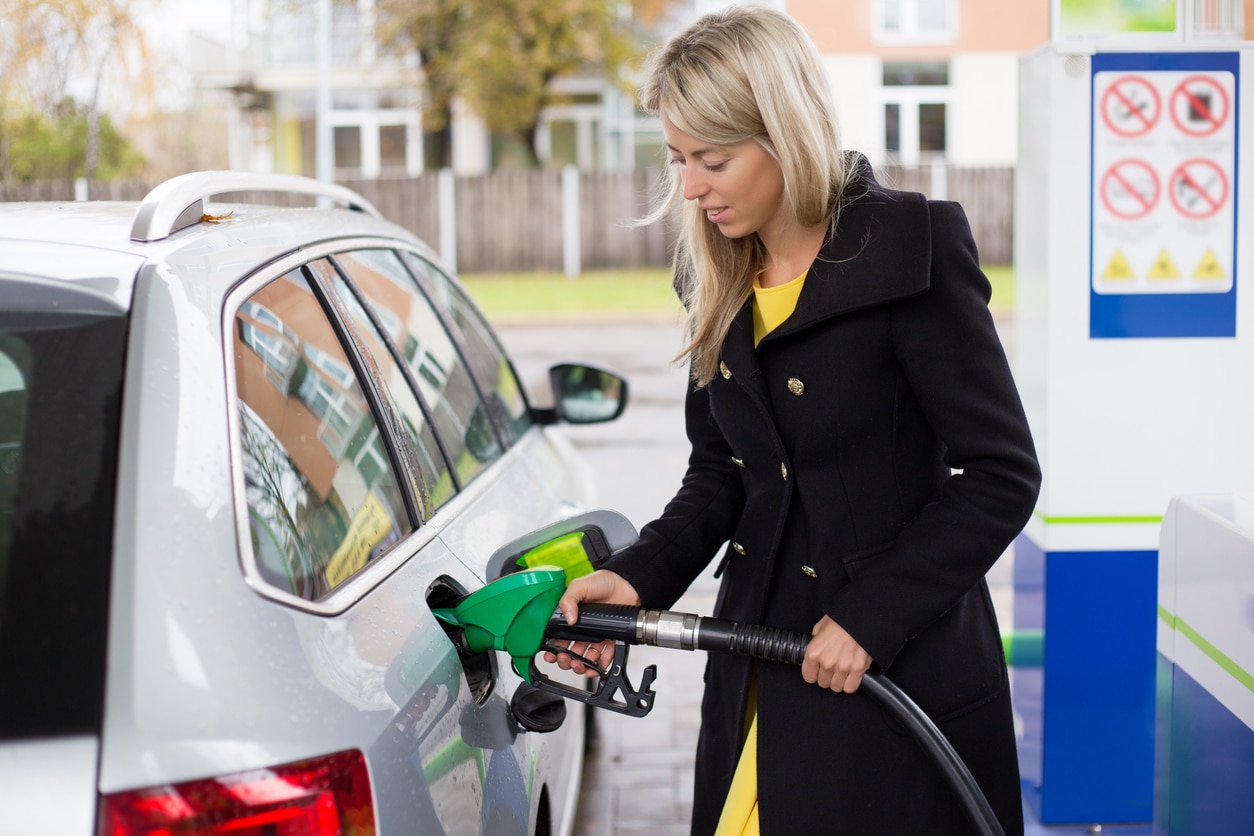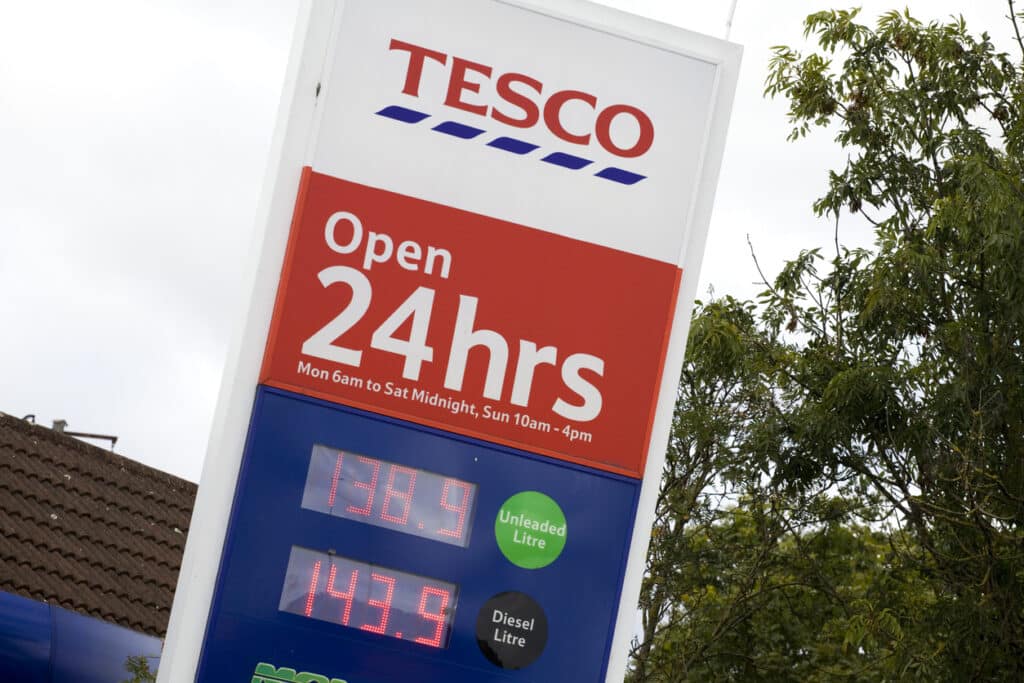Drive a petrol-powered car? Then you may most probably have questions about where to find cheaper fuel, how petrol prices are determined or whether you can use the new type of petrol, E10, in your car.
To help you find the information and advice you need in one place, we’ve put together a list of some of the most-searched petrol-related questions on the web. Use the links below to jump to the help you need or read on for the full guide.
Quick Links
- How Are Petrol Prices Determined?
- How to Find Cheaper Petrol?
- What Are the Different Types of Petrol I Can Use?
- Can I Use E10 Petrol in My Car?
How Are Petrol Prices Determined?
A handful of factors affect the price you pay for petrol. That includes the per-barrel cost of crude oil, Fuel Duty and the dollar-to-pound exchange rate.
Let’s start with crude oil. You’ll have heard the term before, but what exactly is it? Basically, it’s petrol in its rawest form, before it’s been refined and distilled to create petrol, diesel and other oil products.
Crude oil is valued on a per-barrel basis in US dollars. When fuel manufacturers like Shell have to pay more for crude oil, this ultimately impacts prices at the pumps.
The problem with crude oil is that its value is highly volatile and exposed to a huge range of external factors, as well as peaks and troughs in demand. In fact, the reason why we’re currently seeing higher-than-average petrol prices is largely down to the War in Ukraine, which sent the per-barrel cost of oil soaring in February 2022.
Next, there’s Fuel Duty, which is paid on all oil-containing products, including petrol and diesel. Right now, Fuel Duty for unleaded petrol is set at 0.5295p, which means that for every litre of fuel that goes into your car, 52.95p goes towards tax.
53p a litre might sound like a lot, but that’s actually a discounted rate. During the Spring Statement, the government stepped in to offer a 5p discount on Fuel Duty for 12 months to help shield motorists at a time of very high oil prices.
To make outlining what affects oil prices even trickier, it’s also important to bear in mind the pound-to-dollar exchange rate. Since crude oil is bought and sold in US dollars, British fuel manufacturers pay more or less depending on the current performance of the pound in global economic markets.
How to Find Cheaper Petrol?
Finding cheap fuel is a priority for a growing number of motorists. With petrol prices hovering at near-record highs, any saving on fuel’s per-litre cost is welcome for drivers struggling with the cost-of-living crisis.
If you want to find the cheapest petrol, here are a few things to try…
- Try the PetrolPrices smartphone app – PetrolPrices is a site dedicated to helping users find cheap fuel near them. They have a desktop site, a smartphone app and an email newsletter informing motorists of the best localised deals. If you’re serious about saving money on fuel, make this your place to start.
- Use supermarket fuel – even without a discount, supermarket fuel is generally a couple of pence cheaper than other fuel operators. That’s not down to inferior quality, either, but just because they’re in a better position to offer a more competitive price.
- Collect points on every litre of petrol – some supermarkets have loyalty schemes that let you collect points on fuel; that includes Tesco Clubcard and Sainsbury’s Nectar. While this won’t translate into actual cash savings, earning points qualifies you for discount coupons that you can spend on other things – including fuel. If you’re a high-mileage driver, it’s definitely worth doing.
- Avoid filling up on main roads and motorways – if you’re planning a big trip, try to find cheaper fuel stations along the route rather than relying on service stations on main artery roads. Petrol at motorway services can be up to 20p a litre more expensive than the supermarket equivalent, so it’s definitely worth finding cheaper alternatives.
What Are the Different Types of Petrol I Can Use?
Here in the UK, there are two main types of petrol: standard unleaded E10 (95 octane) and super unleaded E5 (97/98 octane).
Most drivers will use standard unleaded E10 which has a 95 octane rating. Introduced in September 2021, E10 has a higher concentration of renewable ethanol than E5 which makes it more environmentally friendly.
Super unleaded E5 has a 97-98 octane rating, which means it’s slightly most combustible than standard unleaded. You might use this if you have a high-performance car, or your car is older and not compatible with E10.
If you don’t want to pay extra for super unleaded, you can use fuel additives to increase the octane rating of standard unleaded. There are also fuel additives that act as a lead replacement – great for classic car owners.
As well as standard and super unleaded, you might encounter other specialist types of petrol, the most prominent of which is Shell V-Power Unleaded. These fuels differ from standard unleaded in that they contain more cleaning and lubrication agents, which help improve performance and fuel efficiency.
Can I Use E10 Petrol in My Car?
E10 fuel arrived at UK filling stations in October 2021, at which time we published a guide on how it differs from the outgoing E5 variant. It’s effectively a new type of standard unleaded fuel that contains a higher concentration of ethanol, which contributes to improved carbon emissions.
Many petrol car drivers will have scarcely noticed the switch from E5 to E10. The new fuel is compatible with most petrol cars built after 2011, with the RAC confirming that the fuel will work in up to 97% of petrol vehicles on the road.
If you’ve been avoiding using E10 fuel through fear of it not working in your car, you can use the
If you’re keen to make the switch to standard E10 unleaded, Redex Petrol System Cleaner is formulated to protect older cars from ethanol. Add a shot to every tank of fuel.
We hope you’ve found the answers you were looking for. At Redex, we aim to help drivers enjoy a better drive, whether that’s through our range of innovative fuel additives or by publishing up-to-date advice on different aspects of running a car. Visit our Help & Advice pages for more insights and guidance from our expert team.


